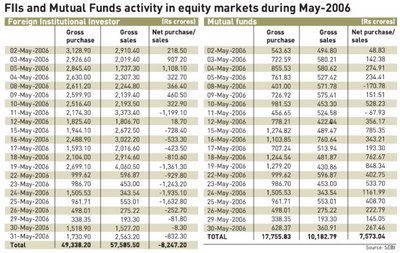Google and Microsoft differ fundamentally in their views on Office applications. While Google is all for having the application residing on a server, with the user accessing and using it through a thin client (browser), Microsoft believes in the traditional notion of having the application reside on your hard disk. [read about Google Spreadsheet]
In the medium term, with bandwidth being an issue, apart from the fact that there is only so much you can do inside a browser, I expect Microsoft to win the Office battle. In the long run too, with cheap hard disk space and cheap processors, I do not see much benefit in a browser based Office suite. One benefit that I forsee is that collaborative editing (example, Writely) may really take off (people in remote locations editing the same document over the Internet), but I am sure the guys at Microsoft will find a way to include collaborative editing within Office.
